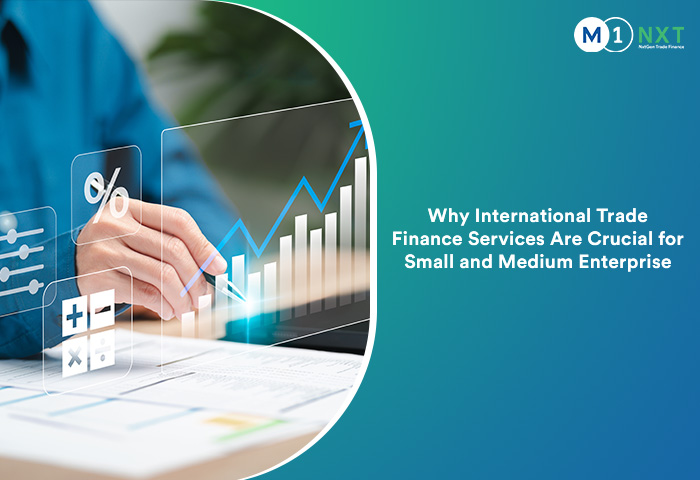Exploring Global Trade Finance Solutions
 |
| Exploring Global Trade Finance Solutions |
By offering funding, risk reduction, and payment options to different companies engaged in international trade, trade finance supports global trade. However, a significant number of businesses have chosen to outsource international trade finance services due to current challenges in risk management, digitisation, and trade regulation. This blog will explore global trade finance solutions, highlighting their benefits and the role of outsourcing in addressing modern trade challenges.
Benefits of Global Trade Finance Outsourcing
Global trade finance outsourcing offers a range of
benefits for businesses engaged in international commerce. Here's a breakdown:
Reduced Operational Costs:
- Economies of Scale: Outsourcing providers specialise in trade
finance, allowing them to leverage economies of scale and offer services
at lower costs than in-house operations.
- Reduced Overhead: Businesses can eliminate the need for
dedicated staff, software, and infrastructure related to trade finance,
reducing overhead expenses.
- Variability of Costs: Outsourcing can turn fixed costs into
variable costs, which can be helpful for businesses with fluctuating trade
volumes.
Increased Efficiency and Expertise:
- Specialized Knowledge: Outsourcing providers have specialised
knowledge of global trade finance regulations, procedures, and best
practices.
- Streamlined Processes: They often have established processes and
technology to streamline trade finance transactions, reducing processing
times and errors.
- Access to Experts: Businesses gain access to a team of experts
who can provide guidance and support on complex trade finance matters.
Improved Risk Management:
- Risk Mitigation: Outsourcing providers can help businesses
mitigate risks associated with international trade, such as credit risk,
political risk, and currency risk.
- Compliance Expertise: They stay up-to-date on changing regulations
and compliance requirements, ensuring businesses remain compliant.
- Fraud Detection: Many outsourcing providers use advanced
technology to detect and prevent fraud.
Enhanced Focus on Core Competencies:
- Freeing Up Resources: Outsourcing trade finance allows businesses
to focus on their core competencies, such as product development, sales,
and marketing.
- Strategic Growth: By freeing up resources, businesses can
invest in strategic growth initiatives.
Access to Global Network and Technology:
- Global Reach: Outsourcing providers often have a global
network of partners and resources, enabling businesses to expand their
international reach.
- Advanced Technology: They invest in advanced technology, such as
trade finance platforms and data analytics tools, to improve efficiency
and risk management.
- Up-to-date systems: Outsourcing companies must keep up with the
latest software, reducing the need for the initial company to do so.
Improved Cash Flow:
- Faster Processing: Outsourcing can help to accelerate the
processing of trade finance transactions, improving cash flow.
- Access to Financing: Some outsourcing providers offer trade
finance solutions, such as factoring and forfaiting, which can improve
access to working capital.
Regulatory Compliance:
- Staying Current: Global trade regulations are complex and
constantly changing. Outsourcing providers are experts in this field, and
they keep up with the changes.
- Reduced Risk: This reduces the risk of compliance
violations, which can lead to fines and other penalties.
Given these advantages, businesses are increasingly relying on specialized platforms to manage their trade finance operations.Various global trade
finance outsourcing companies have their international trade finance
services platforms.
After learning about key growth drivers and benefits, it's time to know about how ITFS platforms and how they work:
Core Functions of ITFS Platforms
Digital Trade Finance Facilitation:
· ITFS
platforms serve as digital marketplaces that connect exporters, importers, and
financiers.
· They aim to
streamline and automate trade finance transactions, making them faster and more
efficient.
Service Offerings:
ITFS platforms for exporters,
financiers, and importers facilitate various trade finance services, including:
· Supply chain financing
·
Factoring
· Forfaiting
Key Developments and Regulatory Aspects
IFSCA Regulation:
·
In India, the
International Financial Services Centres Authority (IFSCA) plays a crucial role
in regulating ITFS platforms.
·
IFSCA has issued
guidelines to establish and operate these platforms within International
Financial Services Centres (IFSCs).
Revised Guidelines:
Recent revisions to the IFSCA guidelines have
broadened the scope of ITFS platforms, enhancing their functionality and
accessibility.
This blog covers key aspects of outsourcing international trade finance services.
M1 NXT is a digital financial and supply chain platform. It delivers next-generation working capital solutions through a future-ready, competitive, and secure online platform. Authorised by the IFSCA to establish an International Trade Financing Services Platform in GIFT City, M1 NXT specialises in streamlining open account cross-border trade. By giving buyers and suppliers control over payment timelines, M1 NXT unlocks working capital, enabling businesses to thrive. For these reasons, M1 NXT has emerges as a leading trade finance solutions for MSMEs.
Conclusion
Global trade finance outsourcing is growing due to complex trade demands and regulations. It offers cost savings, efficiency, and risk management benefits. ITFS platforms further streamline processes, providing digital solutions and diverse financing options within regulated frameworks. Businesses can optimise operations and drive growth by leveraging these solutions. This blog also explains how ITFS platforms work.
M1 NXT, an IFSCA-approved digital trade finance platform in GIFT
City, provides advanced working capital solutions for MSMEs. Specialising in
open account cross-border trade, it empowers businesses with flexible payment
terms, unlocking working capital and driving growth.



Comments
Post a Comment